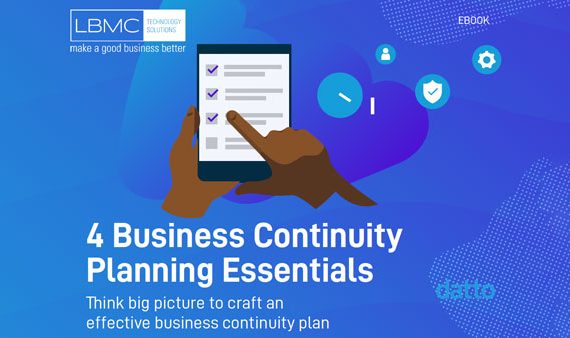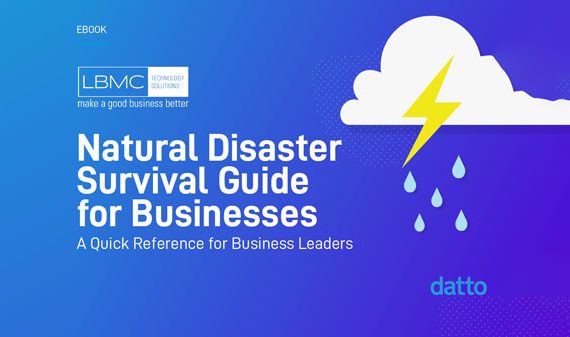Confidently Respond in Emergency Situations
Caring for our people, in our offices and communities, is our primary concern.
LBMC takes the safety and well-being of our employees and communities very seriously. Our priority is to provide a secure environment for our staff within our facilities, as well as to extend our assistance and support to the communities we operate in. Our commitment goes beyond just internal preparation. We recognize that our response to natural disasters can have a lasting impact on our business operations and reputation. We are continuously monitoring events in our area, and across the country, to manage our response both inside and outside our walls.
Empowering Your Company’s Response to Natural Disasters
Your company’s response to any natural disaster can impact your business’ future success.
Plan Ahead: Establish a comprehensive emergency response plan tailored to your company’s needs. Consider potential scenarios, designate responsibilities, and define communication protocols.
Invest in Monitoring Systems: Stay informed about local and national events that could affect your operations. Swift and informed decision-making is key.
Train Your Team: Develop a team of professionals who are well-versed in crisis management. Provide training in evacuation procedures, first aid, and effective communication strategies. A prepared team can make all the difference.
Extend a Helping Hand: Consider ways to support your neighbors during challenging times. Collaborate with local authorities and organizations to offer aid, resources, or volunteer efforts.
Stay Adaptable: Natural disasters can be unpredictable. Your ability to adapt to evolving situations is a lesson to embrace. Continuously review and update your emergency plan based on lessons learned and changing circumstances.
By integrating these practices into your company’s approach, you can foster a culture of safety, resilience, and community engagement.
Natural Disasters: How to Prepare for Things Out of Your Control
When it comes to mother nature, there’s little we can do but prepare for whatever she brings our way. This is especially true when it comes to natural disasters like earthquakes, tornadoes, hurricanes, or blizzards. While your number one priority may be keeping your employees and customers safe, keeping your business running during a disaster will be just as important. The following resources can help you as you plan.
For information specific to personal and family preparedness, please visit Ready.Gov.
Taxes
- Taxes Play a Part in the Relief After Natural Disasters – You can keep up-to-date with the latest tax relief information from the IRS.
- Giving in the Wake of Natural Disasters
Technology
- Protect Your Business from Natural Disasters
- Leverage remote working tools. See resources below.
4 Business Continuity Planning Essentials

Think big picture to craft an effective business continuity plan
Disaster recovery and business continuity planning should be considered a critical aspect of running a business. However, many organizations disregard it completely. Others have some kind of plan in place, but fail to grasp how time consuming the recovery process can be and the the associated cost of downtime. The good news is that today’s data protection technologies and services have greatly improved the IT piece of the business continuity puzzle. There are a wide array of options in the market today at different price points, which enables you to select a product or service tailored to your specific business needs.
In our Business Continuity Planning Essentials guide, learn about employee and client communications as well as technical needs to keep your business moving.
If you have questions or would like to discuss more about business continuity planning and disaster recovery, contact us.
Natural Disaster Survival Guide for Businesses

A Quick Reference for Business Leaders
When it comes to mother nature, there’s little we can do but prepare for whatever she brings our way. This is especially true when it comes to natural disasters like earthquakes, tornadoes, hurricanes, or blizzards. While your number one priority may be keeping your employees and customers safe, keeping your business running during a disaster should be on your mind as well.
This Natural Disaster Survival Guide will review how different natural disasters can impact your business, and what to look out for.
If you would like to discuss further, contact us to discuss how we can prepare your business in the case of disaster.
